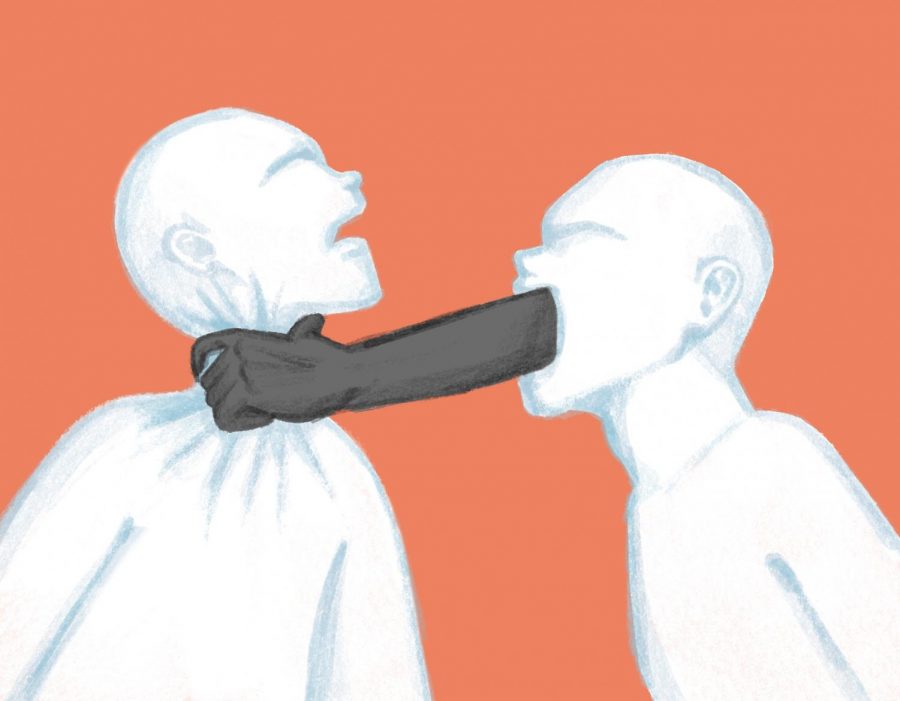What’s in a Word?
“It’s just locker-room talk! I have a mother and a sister, so of course I respect women.” Yes, because my biological affiliation to a female means that I am incapable of exhibiting sexism and misogyny by objectifying women.
“What is the problem if I say the n-word (or insert any other commonly-used slur here)? It’s just a word, don’t take things so seriously.” Because my usage of this word just now was not meant to degrade you, it, therefore, excuses the history behind the word and negates your interpretation of what I said.
These phrases, unfortunately, are all too common. Academic debate, playful banter, casual conversation – these phrases are incredibly integrated into our everyday lives and dialogue. However, in a world where marginalized groups and minorities are beginning to have a voice and space where they can speak up against blatantly rude behaviour, it is essential for people to speak truthfully, and regard one’s words as concrete. If one hides their malicious intent behind the mentality that words have no meaning, a culture ripe with deception and misunderstanding is bred.
Oftentimes, people who call others out on their damaging way of speaking are labelled as too sensitive, unable to take a joke, a “snowflake.” But since when is being sensitive a bad thing? Why is empathy scorned, when it is traditionally considered an admirable trait? When did we get to a point where we grant people a pass to make jokes that are really just thinly and carelessly veiled insults? Allowing someone to get away with such behaviour may grant others around you a laugh, but the prejudice and bitterness under the guise of humour can create consequences that last a lifetime.
The emergence of disparagement humour – that is, eliciting amusement through the denigration, humiliation, and belittlement of individuals, social groups, or ideologies – has become a socially-acceptable method through which one can assert otherwise racist, sexist, or simply unacceptable comments and beliefs. One could even go as to say that this form of humour has been around for as long as our society allowed individuals to pit one against another, and label it as comedy.
This is extremely problematic in that it enables and promotes a common mentality and understanding that such mindsets are tolerated and not harmful, and those who are hurt by such comments are irrational and overly-sensitive. Various studies in social psychology have supported claims that jokes targeting a certain group encourage the formation of negative attitudes, reinforce stereotypes, and even facilitate and normalize prejudice and harassment towards that group.
Thomas Ford, a social psychology professor at the University of Western Carolina, studied the idea of “normative ambiguity” – prejudice against groups that occupy a certain position in society is shifting between being acceptable and unacceptable. He found that these groups, who oftentimes were marginalized communities (in his studies, the gay community), were more susceptible to increased prejudices upon viewing and reading jokes disparaging gay men. He compared this to perceptions of the community after non-disparaging comments and also the effect of disparaging humour on other groups, such as politicians. Through these experiments, Ford concluded that groups that are already ostracized (normative ambiguity) and cast on society’s sidelines are the most vulnerable to the consequences of this behaviour.
Despite the abundance of evidence and sources backing up the implications of disparagement humour, masses are still opposed to this rhetoric. In the last several decades, sentiment against the suppression of such dialogue and behaviour has given rise to the term “politically correct.” The Cambridge dictionary defines someone who is politically correct as one who “believes that language and actions that could be offensive to others, especially those relating to sex and race, should be avoided.” This definition appears to be relatively tame – doesn’t it describe empathy and the idea of thinking before you speak? However, many people believe that political correctness takes away their right to freedom of speech, and is a significant problem at both an individual and administrative level. Some believe that being able to voice one’s opinion is an inalienable right, and this movement of “policing” what others say is impeding on this said right.
This argument may have some basis, but is also partly misinformed. What might be perceived as politically incorrect is not something that anyone actually controls or punishes you for. In common cases, it is simply those affected by this speech that are correcting you in hopes that you will accommodate their discomfort. The dissatisfaction about growing political correctness only angers people because it marks a change in beliefs and attitudes that they may not be ready for. Those not ready to adapt to these changes wield extreme political correctness as a shield to which they can deflect those who criticize and condemn their behaviour. Even leaders, politicians, and high-profile figures attempt to demonize political correctness as a threat to freedom and individuality and a sign of cowardice to avoid.
Donald Trump, President of the United States, responded to claims of calling women he did not like “fat pigs,” “dogs,” “slobs,” and “disgusting animals” by saying “I think the big problem this country has is being politically correct. I’ve been challenged by so many people, I don’t frankly have time for total political correctness. And to be honest with you, this country doesn’t have time either.” The unwillingness to take accountability for one’s past actions and instead, passing the blame off to the target demonstrates how ingrained, yet misconstrued, the idea of “political correctness” has become in today’s society and political domain.
This topic is extremely topical and sparks frequent debate. However, to me it is rather simple: this is a matter of respect. If something is said and offends another before being corrected, there should be no issue. However, if one blatantly disregards the target’s voice and how one’s words affect them, there can be serious consequences. As our world becomes increasingly interconnected and we learn every day about what unites us, there has never been a time where political correctness – or rather, empathy, tolerance, and sensitivity, is needed more. Of course, one is entitled to their individual opinion. However, when one uses their opinion to solely denigrate another, only to play it off as hyper-sensitivity on the target’s part, a problem arises. Only when we adopt an open-minded, thoughtful, and ready to listen attitude, can we engage in the tough conversations necessary to learn about why people are being so “sensitive.”
So what’s in a word? A whole lot, actually.










